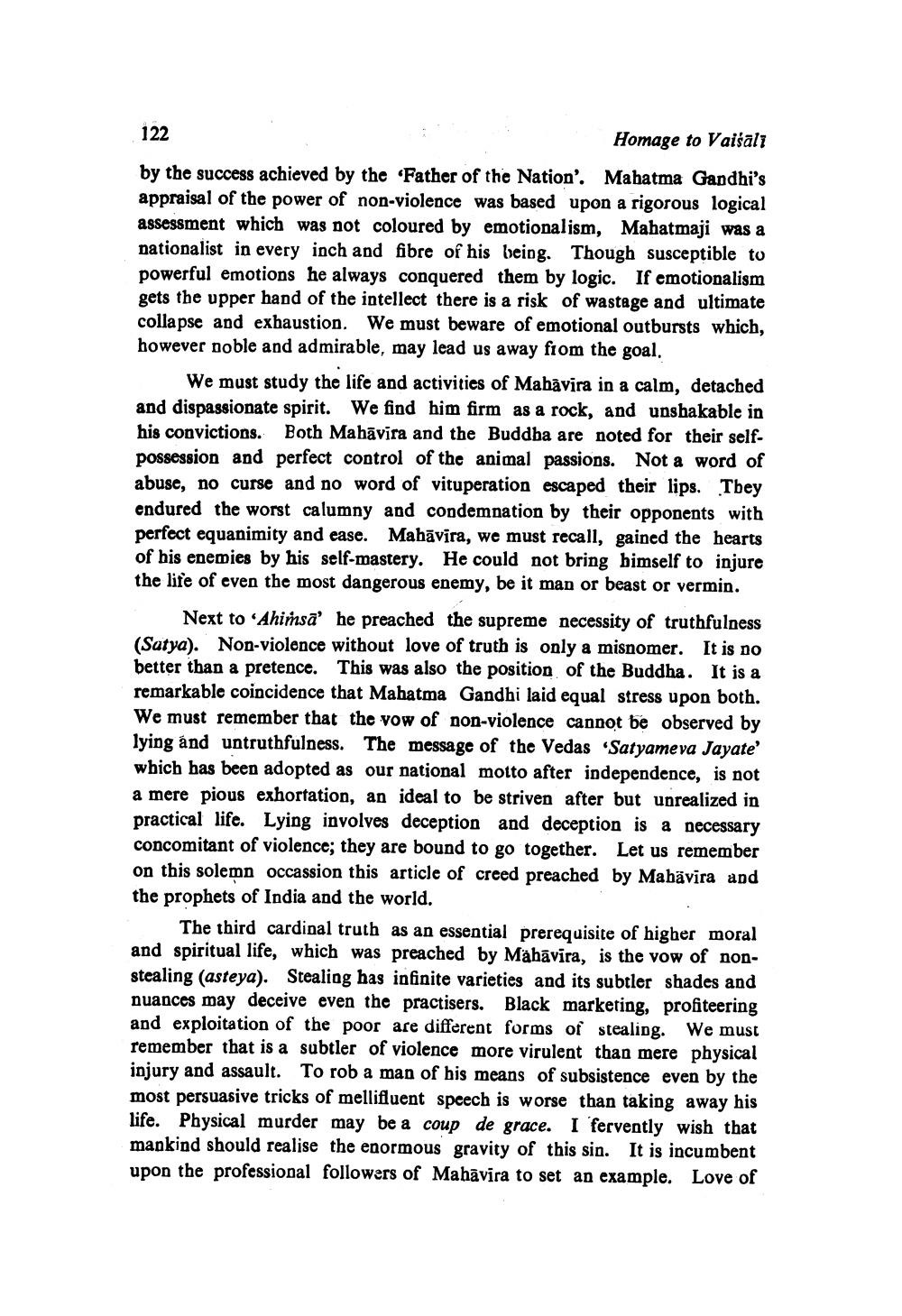________________ 122 Homage to Vaisali by the success achieved by the Father of the Nation'. Mahatma Gandhi's appraisal of the power of non-violence was based upon a rigorous logical assessment which was not coloured by emotionalism, Mahatmaji was a nationalist in every inch and fibre of his being. Though susceptible to powerful emotions he always conquered them by logic. If emotionalism gets the upper hand of the intellect there is a risk of wastage and ultimate collapse and exhaustion. We must beware of emotional outbursts which, however noble and admirable, may lead us away from the goal. We must study the life and activities of Mahavira in a calm, detached and dispassionate spirit. We find him firm as a rock, and unshakable in his convictions. Both Mahavira and the Buddha are noted for their selfpossession and perfect control of the animal passions. Not a word of abuse, no curse and no word of vituperation escaped their lips. Tbey endured the worst calumny and condemnation by their opponents with perfect equanimity and ease. Mahavira, we must recall, gained the hearts of bis enemies by his self-mastery. He could not bring bimself to injure the life of even the most dangerous enemy, be it man or beast or vermin. Next to Ahimsa'he preached the supreme necessity of truthfulness (Satya). Non-violence without love of truth is only a misnomer. It is no better than a pretence. This was also the position of the Buddha. It is a remarkable coincidence that Mahatma Gandhi laid equal stress upon both. We must remember that the vow of non-violence cannot be observed by lying and untruthfulness. The message of the Vedas "Satyameva Jayate' which has been adopted as our national motto after independence, is not a mere pious exhortation, an ideal to be striven after but unrealized in practical life. Lying involves deception and deception is a necessary concomitant of violence; they are bound to go together. Let us remember on this solemn occassion this article of creed preached by Mahavira and the prophets of India and the world. The third cardinal truth as an essential prerequisite of higher moral and spiritual life, which was preached by Mahavira, is the vow of nonstealing (asteya). Stealing has infinite varieties and its subtler shades and nuances may deceive even the practisers. Black marketing, profiteering and exploitation of the poor are different forms of stealing. We must remember that is a subtler of violence more virulent than mere physical injury and assault. To rob a man of his means of subsistence even by the most persuasive tricks of mellifluent speech is worse than taking away his life. Physical murder may be a coup de grace. I fervently wish that mankind should realise the enormous gravity of this sin. It is incumbent upon the professional followers of Mahavira to set an example. Love of




